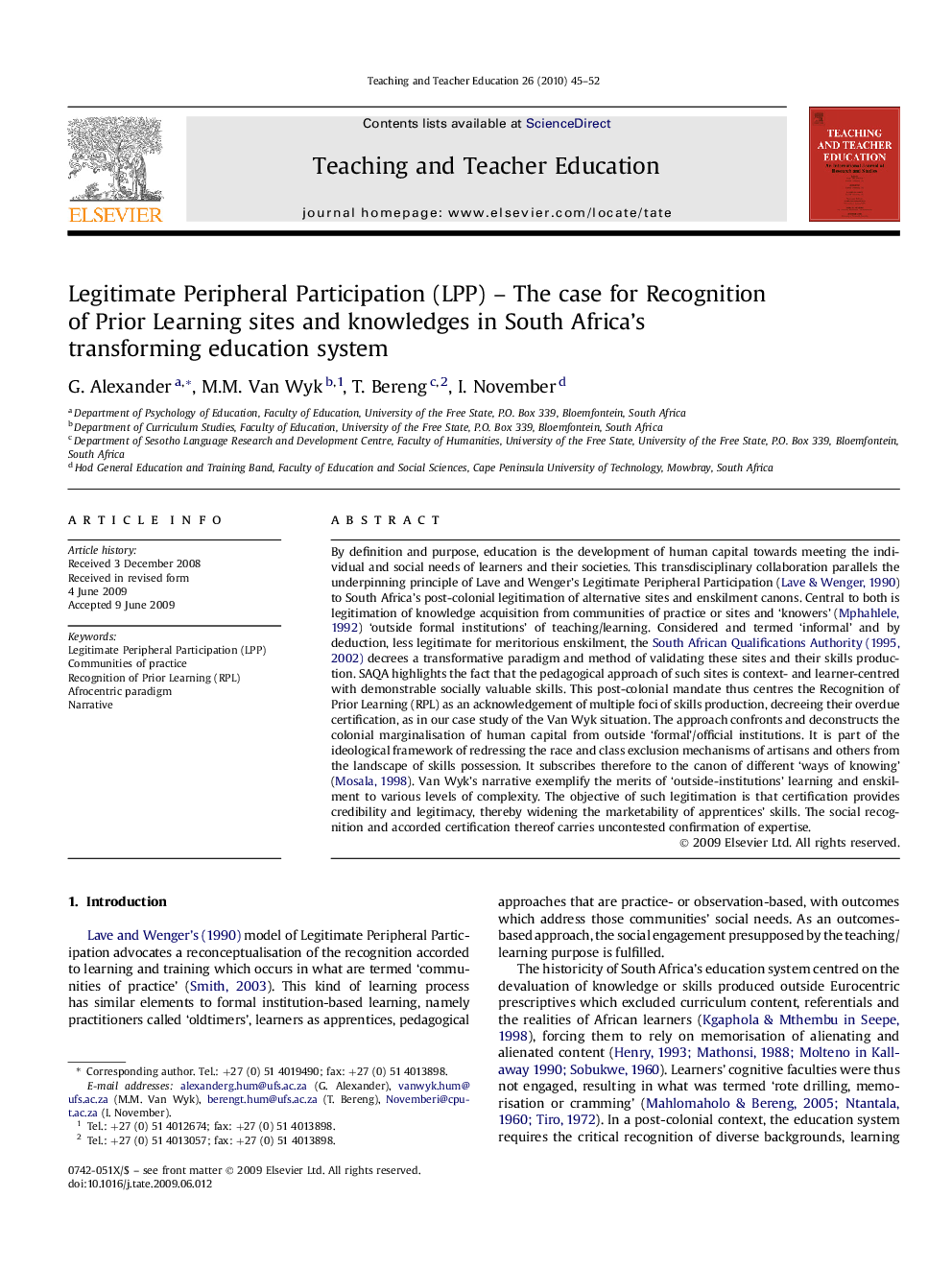| کد مقاله | کد نشریه | سال انتشار | مقاله انگلیسی | نسخه تمام متن |
|---|---|---|---|---|
| 374603 | 622502 | 2010 | 8 صفحه PDF | دانلود رایگان |

By definition and purpose, education is the development of human capital towards meeting the individual and social needs of learners and their societies. This transdisciplinary collaboration parallels the underpinning principle of Lave and Wenger's Legitimate Peripheral Participation (Lave & Wenger, 1990) to South Africa's post-colonial legitimation of alternative sites and enskilment canons. Central to both is legitimation of knowledge acquisition from communities of practice or sites and ‘knowers’ (Mphahlele, 1992) ‘outside formal institutions’ of teaching/learning. Considered and termed ‘informal’ and by deduction, less legitimate for meritorious enskilment, the South African Qualifications Authority, 1995 and South African Qualifications Authority, 2002 decrees a transformative paradigm and method of validating these sites and their skills production. SAQA highlights the fact that the pedagogical approach of such sites is context- and learner-centred with demonstrable socially valuable skills. This post-colonial mandate thus centres the Recognition of Prior Learning (RPL) as an acknowledgement of multiple foci of skills production, decreeing their overdue certification, as in our case study of the Van Wyk situation. The approach confronts and deconstructs the colonial marginalisation of human capital from outside ‘formal’/official institutions. It is part of the ideological framework of redressing the race and class exclusion mechanisms of artisans and others from the landscape of skills possession. It subscribes therefore to the canon of different ‘ways of knowing’ (Mosala, 1998). Van Wyk's narrative exemplify the merits of ‘outside-institutions’ learning and enskilment to various levels of complexity. The objective of such legitimation is that certification provides credibility and legitimacy, thereby widening the marketability of apprentices' skills. The social recognition and accorded certification thereof carries uncontested confirmation of expertise.
Journal: Teaching and Teacher Education - Volume 26, Issue 1, January 2010, Pages 45–52